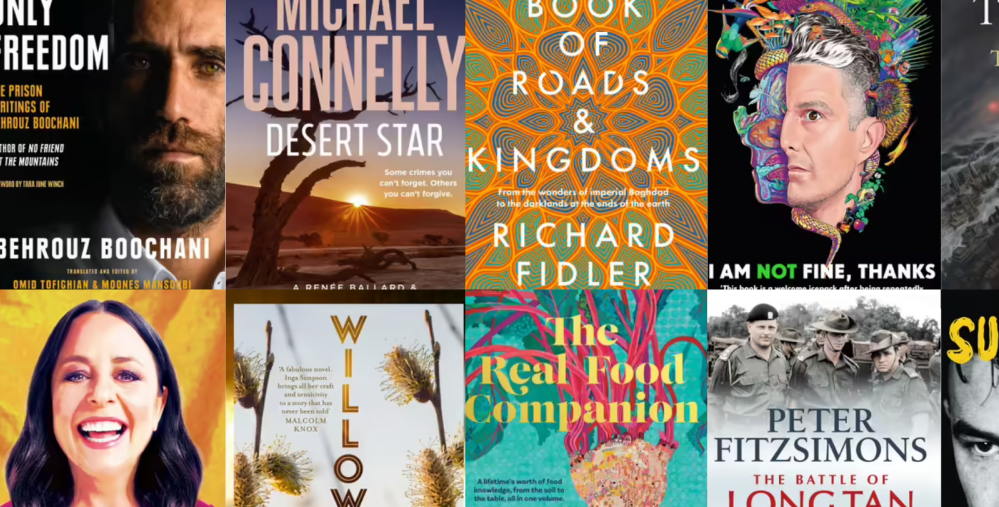Martha Hall Kelly is the author of Lilac Girls, the runaway bestseller that spent over a year on the New York Times paperback chart. She lives in Connecticut, where she spends her days filling legal pads with stories and reading World War II books. Lost Roses, her second novel, was released in April 2019 and her third, Sunflower Sisters, is out now.
Today, Martha Hall Kelly is on the blog to take on our Ten Terrifying Questions – read on!
1. To begin with why don’t you tell us a little bit about yourself – where were you born? Raised? Schooled?
I was born in Milton, Massachusetts. Raised there as well and went to Catholic high school. For college I went to Syracuse University undergrad and Northwestern University grad, both majoring in journalism.
2. What did you want to be when you were twelve, eighteen and thirty? And why?
At twelve: An author of racy mystery novels
At eighteen: Newspaper reporter
At thirty: Creative Director at a major advertising agency
3. What strongly held belief did you have at eighteen that you do not have now?
When I was sixteen, I almost died from a blood disease and I thought “If I die now, I’ve lived a good life, I’m happy.” But now that I’m older and wiser I realize I had not even started forming as a human and would have missed so many incredible things.
I also thought hotdogs were a good diet food. I’ve come to understand that, unfortunately, that’s not true.
4. What were three works of art – book or painting or piece of music, etc – you can now say, had a great effect on you and influenced your own development as a writer?
For every book it has been different. For Lilac Girls, I listened to a lot of church choir music recorded at St. Thomas church in NYC, the church she attended, which helped me write some of the Caroline chapters. For Lost Roses, Harold Glickman’s ‘Portrait of a Black Gardener’ inspired the character Mr. Gardener. For Sunflower Sisters, two paintings were inspirational. The first, Eastman Johnson’s ‘A Ride for Liberty—The Fugitive Slaves’ stayed in my head as I wrote the Jemma chapters, the young woman enslaved on a tobacco plantation. She constantly yearns for her freedom and plots how to escape her terrible bondage and this painting expresses that terrifying feeling of escape so beautifully. The second, Winslow Homer’s ‘Rainy Day in Camp’ not only captures life for the average solder during the Civil War but was inspired by a poem written by one of the Woolsey sisters, Mary, who features prominently in Sunflower Sisters. She wrote the poem ‘A Rainy Day at Camp’, which every soldier, North and South carried with them into battle, but since people assumed the poem was written by a man, she could not reveal that she was the author. Such a different time for female authors.
5. Considering the innumerable artistic avenues open to you, why did you choose to write a novel?
My first novel chose me in a weird way. I had retired from being an advertising writer for many years and figured my career as a writer was over. Then one Mother’s Day I drove about an hour from my home in Connecticut where I lived with my husband and three young children, to visit a house-museum that had been the home of a New York socialite named Caroline Ferriday. I fell in love with Caroline and her story of how she championed a group of Ravensbruck Concentration Camp survivors and became obsessed with her story and spent the next ten years traveling the world researching the story. The resulting book, Lilac Girls, came out in 2016. It’s been a wild ride ever since!
‘If you’ve been places and done interesting things your writing will be more interesting.’
6. Please tell us about your latest novel!
Sunflower Sisters goes back in time from Lilac Girls and tells the story of Caroline Ferriday’s great grandmother Jane Eliza Woolsey, a staunch abolitionist who had seven daughters and one son. It’s told from three points of view: from that of Georgeanna the middle daughter, who became one of the first nurses on the US battlefield, Jemma, an enslaved girl who is horribly abused on a tobacco plantation, and from the POV of Anne-May Watson, the abusive owner of the plantation.
7. What do you hope people take away with them after reading your work?
Though there are many sides to a story, the truth is important to recognise and confront, and justice must be served.
8. Who do you most admire in the realm of writing and why?
Margaret Atwood and The Handmaid’s Tale. She is so immensely talented– a fascinating conversationalist, unabashedly honest and a brave and gifted storyteller. John Irving is a close second. E.B. White for specific voice. John Updike’s character descriptions. Eudora Welty for attitude. Flannery O’Conner. A Good Man is Hard to Find has it all.
9. Many artists set themselves very ambitious goals. What are yours?
To be, in some small way, like Margaret Atwood someday. And to keep writing novels that keep people engaged and entertained for many years to come.
10. What advice do you give aspiring writers?
I hesitate to give advice, for it seems a bit preachy sometimes, but I do think it’s important to at least try and pass on the few nuggets of writing wisdom I’ve gathered in this whole crazy process:
- Since I started in my fifties, I think it’s important to stress it’s never too late to start writing. All most agents and publishers care about is your story and if they can sell it.
- Write about something you are completely passionate about. To the point of obsession. This sounds obvious, but writing a novel requires a lot of work and it helps if you go into it all in.
- That brings us to empathy. To make readers care, you need to be a caring person as well. Readers can tell. They have an uncanny way of knowing your most intimate stuff. One of my favourite books, John Irving’s The Cider House Rules, shows his empathy so beautifully and is a great illustration of this idea at work. He cares deeply about his characters and we do too, as a result.
- Since your writing is just an extension of you, if you’ve been places and done interesting things your writing will be more interesting.
- You don’t need an advanced degree to write a commercially successful novel (if that is your goal) but it really helps to read books on craft. Much advice on writing starts with ‘read extensively’ and that’s true, but I think it’s even more important to read craft books. As much as some authors chafe at the idea there are some rules in novel writing, it’s true. There are maybe six things you absolutely have to do when writing a saleable novel and you really need to know them so you can break those rules if you want.
- If you can afford it, hire a professional editor. It’s so important to have the advice of someone other than your spouse, friend or writing group member. You can spend years listening to bad advice of those around you who don’t understand publishing and either discourage you or encourage the wrong things. I’m lucky that my husband and children read my manuscripts and are very helpful, but I also hired an independent editor early on and think that was a huge part of getting published in the first place.
Thank you for playing!
—Sunflower Sisters by Martha Hall Kelly (Penguin Books Australia) is out now.

Sunflower Sisters
Georgeanne Woolsey isn't meant for the world of lavish parties and demure attitudes. So when civil war ignites the nation, she follows her passion for nursing during a time when doctors considered women a bother on the battlefront. She and her sister Eliza venture from New York to Washington, D.C. to Gettysburg, and while involved in the war effort witness firsthand the unparalleled horrors of slavery.
In the South, Jemma is enslaved on the Peeler Plantation, while her sister, Patience, is enslaved on the property next door...







 Booktopia’s top picks for Mother’s Day 2023
Booktopia’s top picks for Mother’s Day 2023  Top 10 book deals for Black Friday!
Top 10 book deals for Black Friday!  Top 10 Books for Dad this Christmas!
Top 10 Books for Dad this Christmas!
Comments
May 19, 2022 at 2:37 am
Sunflower Sisters is on the schedule within the next few weeks for two book clubs in St. Mary’s County, Maryland. My wife and I are reading it to each other on a long road trip to our daughter Elizabeth’s home in Wisconsin. It helps to relieve the monotony of driving through flat farmland on I-80W. Better get back to it so will be done before the club meets in early June. Good book through 7 chapters.